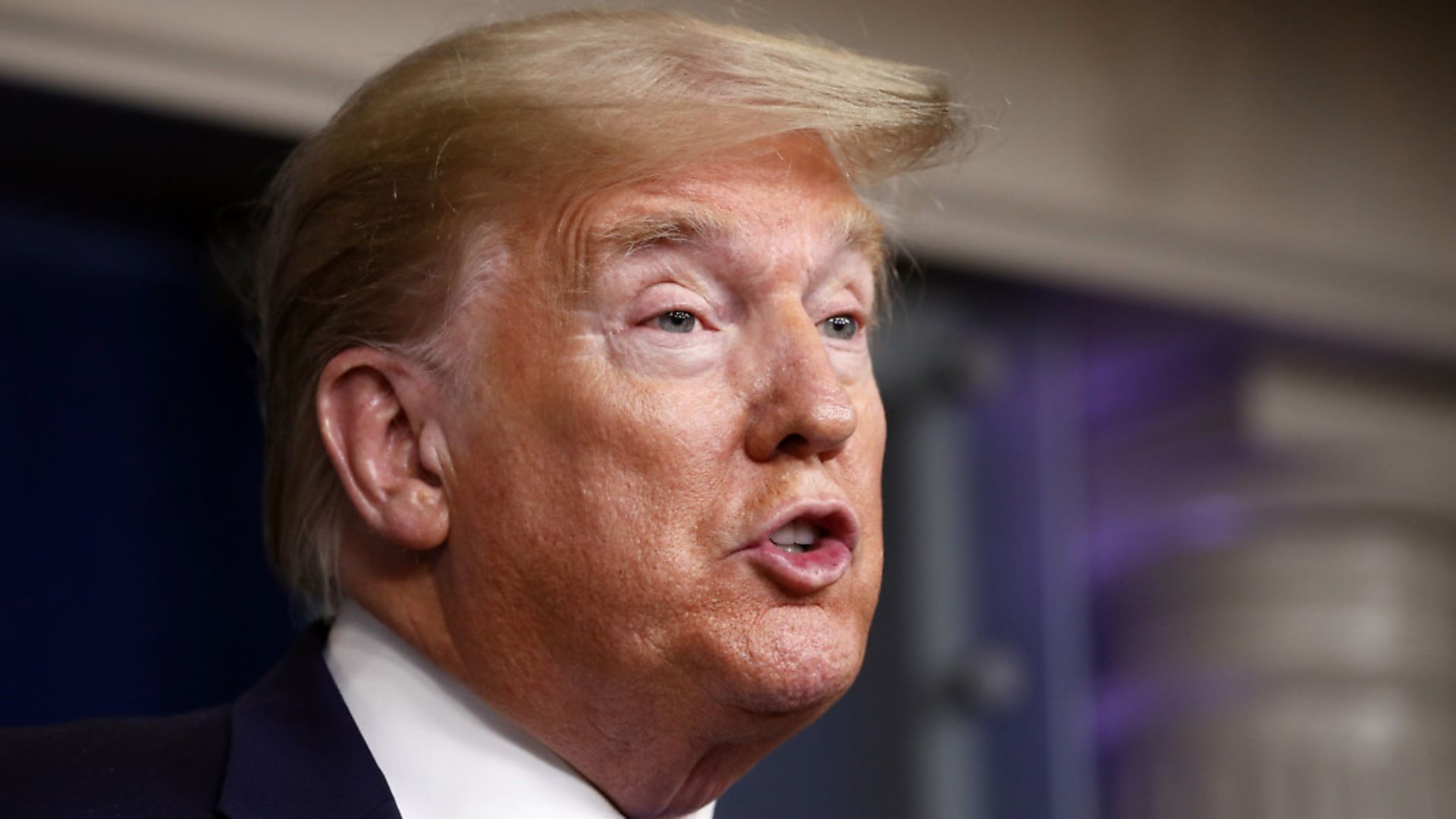
The president’s removal from the social network could create yet another cultural chasm between Democrats and Republicans.
“Hello, I’m new to Twitter, what are you guys up to”, says a tweet purporting to be from someone called John Barron – whose avatar resembles Donald Trump with a photoshopped moustache.
On Friday, Trump’s Twitter account was permanently suspended owing to what Twitter termed “the risk of further incitement of violence”, following Wednesday’s attack on the Capitol by hordes of the president’s supporters.
Far likelier than slipping back onto the platform in cunning disguise however is the possibility of Trump migrating to social networks that sell themselves, in barely coded fashion, as fora for the far-right.
Platforms like Gab and Parler have been attempting to rival Twitter for some years now, with little success, perhaps in part because the president wasn’t on them.
74 million people voted for Trump in November – the second highest number of votes ever cast for a presidential candidate – despite his disastrous handling of the coronavirus pandemic.
According to polls surveying Republicans, 52% believe that Trump was the election’s rightful winner, and 68% believe the vote was “rigged”. 33% believe that the QAnon conspiracy theory – that Democrat politicians are in a cabal of Satan-worshipping cannibalistic paedophiles – is “mostly true”.
The US is not simply polarised. Its electorate is practically living in two separate conceptions of reality.
As the country’s media has evolved, its polarisation has worsened. The founding of Fox News in 1996 by Republican operatives marked a decisive step towards Americans only consuming news that catered to their political persuasions.
Even before social media had become commonplace, a George W. Bush administration official famously told the New York Times reporter Ron Suskind in 2004 that the journalist was living “in what we call the reality-based community.”
The unnamed official said Suskind was among those people who “believe that solutions emerge from your judicious study of discernible reality… That’s not the way the world really works anymore. We’re an empire now, and when we act, we create our own reality.”
That year saw the launch of another reality-creator: Facebook. Joined by Twitter in 2007, the algorithms driving these websites are designed to show people what they want to see, to maximise the time people spend on them, and the number of adverts viewed.
At the moment, Facebook and Twitter enjoy a monopoly on public discourse similar to that of public broadcasters in the 20th century. But what if the same forces that drove viewers to partisan TV channels send users to platforms offering even less connection to opposing ideas?
If Trump were to pitch up on Parler or Gab, he would at first only be joined by his most fervent supporters – and there are many millions of them.
Conceivably however, it might not be long before joining those platforms becomes the thing to do for the lonely, the curious, or the excluded. A natural desire to want to hear both sides of a story could send those people down a radicalising rabbit-hole of fake news and conspiracy theories.
In the last decade, Facebook and Twitter have to a large extent become the public square. Though you are cocooned by the accounts you choose to follow and interact with, there is always the option of seeing what the other side is saying by searching for it.
What would it mean for public discourse in America, and the West more broadly, if it is not simply that we are not speaking to those we see as our opponents, but that we don’t even use the same medium as them to communicate?
The effect would be both camps continuing to believe different facts, while also being largely ignorant of what facts the opposing camp believes.
There is an argument that we have already reached that place, so siloed are we already on mainstream social networks. Indeed, there are corners of Facebook and Twitter many of us have never seen before, and would find shocking.
But to use separate platforms to conduct separate discussions according to political allegiance would still mark a profound progression in the ongoing destruction of shared national stories, value sets and cultures in the West.
Re-fostering that shared understanding will be one of Joe Biden’s gravest responsibilities, if he is to prevent events like those of 6 January from happening again.









